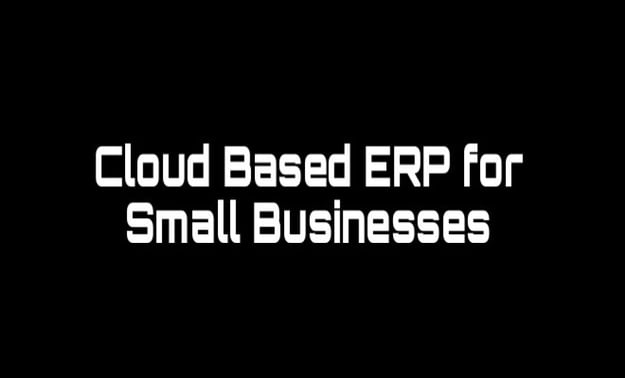No manufacturing process is perfect. Every floor or operations manager understands the reality of constraints within a system. Enterprise Resource Planning helps you identify the limitations of your process, and following the theory of constraints (TOC), helps you restructure around them.

ERP as a SaaS
ERP has changed by leaps and bounds since it first came into play over 20 years ago. ERP software companies increasingly seek to provide organizations with a more flexible business transformation. Cloud-based ERP (software-as-a-service) makes your system accessible from anywhere with a WiFi signal.
Small to medium-sized businesses can take advantage of the flexible and cost-effective nature of cloud ERP. Such software offers extensive freedoms for growth and expansion. These include:
- Freedom to scale and grow: Lowered flat-fee prices and total costs for businesses.
- Freedom from IT constraints: Offers privacy and high-level security in congruence with ease in accessibility and integration.
- Freedom from lock-in: Transferable data at any time.
- Freedom to innovate: Keep up to date with continuous new features and functions.
The accessibility and ease of integration of Cloud ERP help manufacturers identify constraints within their process.
Types of Constraints
 By By definition, a constraint prevents a system from achieving its goal. A core principle within the TOC is that there are at most only a few in a given system. ERP serves to identify the types of internal constraints within a manufacturing process:
By By definition, a constraint prevents a system from achieving its goal. A core principle within the TOC is that there are at most only a few in a given system. ERP serves to identify the types of internal constraints within a manufacturing process:
- Equipment: the manner in which equipment is used limits the ability of the system to produce more goods/services.
- People: a lack of skilled labor limits the system.
- Policy: a written or unwritten policy prevents the system from maximizing production.
These constraints prevent an organization from attaining additional throughput (revenue from sales) even when nothing goes wrong. ERP integrates into your process and identifies what constraints are holding back an organization. With this accrued knowledge, operations and floor managers are better equipped with the knowledge necessary to increase a plant’s production efficiency.
Why Cloud Computing Matters
Cloud-based ERP software provides application scalability and reduced hardware costs; a sizable benefit to manufacturers. It’s a great model for facilities who want to acquire ERP software without needing to manage hardware, software, and upgrades while reducing up-front costs. Operations managers can also build an internal cloud to further reduce hardware cost and maintenance. It also enhances their control over integration and protects their data server.
Cloud-based ERP enhances transparency and accountability within your facility and the freedom to access the software remotely. Stay on top of your production process and any changes that may arise on the fly. It’ll enhance your productivity and efficiency across the board.
See how APS can benefit your cloud-based ERP system through simple integration and various capabilities here.
Related Constraints Selection Video
Key takeaways from this video:
- How PlanetTogether APS models tank constraints as real, finite resources
- How to schedule production while respecting tank capacity, cleaning, and changeover rules
- How what-if scenarios help you compare different tank utilization strategies
- How constraint-based scheduling reduces waste, overtime, and missed due dates in tank-driven processes
You’ve Found Your Constraints—Now See Where They’re Costing You Money
Cloud-based ERP makes it easier to see your constraints—whether they’re equipment, people, or policies—but visibility alone doesn’t guarantee higher throughput. To really increase profit, you need planning and scheduling that revolve around those constraints, not around spreadsheets.
Download our one-page “The Money Is in the Planning” infographic to see the most common ways planning and scheduling issues around bottlenecks show up as:
- Late deliveries and unhappy customers
- Overloaded constraint resources and overtime
- Underused non-bottleneck capacity
- Excess inventory and expediting costs
Use it as a quick checklist to identify where your cloud ERP and constraint insights should feed into Advanced Planning & Scheduling (APS)—so you’re not just finding constraints, you’re profiting from them.
